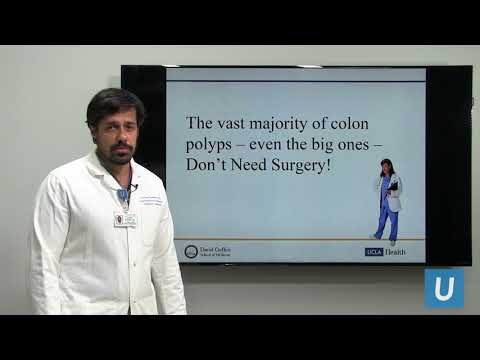Description:
Explore treatment options for colon polyps in this informative lecture by UCLA gastroenterologist Dr. Alireza Sedarat. Gain insights into the nature of colon polyps, their relationship to colon cancer, and detection methods through various screening techniques. Learn about the importance of early detection, appropriate candidates for screening, and the process of polyp removal. Discover advanced endoscopic techniques such as endoscopic submucosal dissection and endoscopic mucosal resection for removing large polyps. Understand the potential complications associated with these procedures and how they are managed. Delve into the significance of pathology in determining cancer risk and the need for ongoing surveillance. Conclude with key takeaway points to enhance your understanding of colon polyp management and prevention of colon cancer progression.

Treatment Options for Colon Polyps - Alireza Sedarat, MD - UCLAMDChat
Add to list